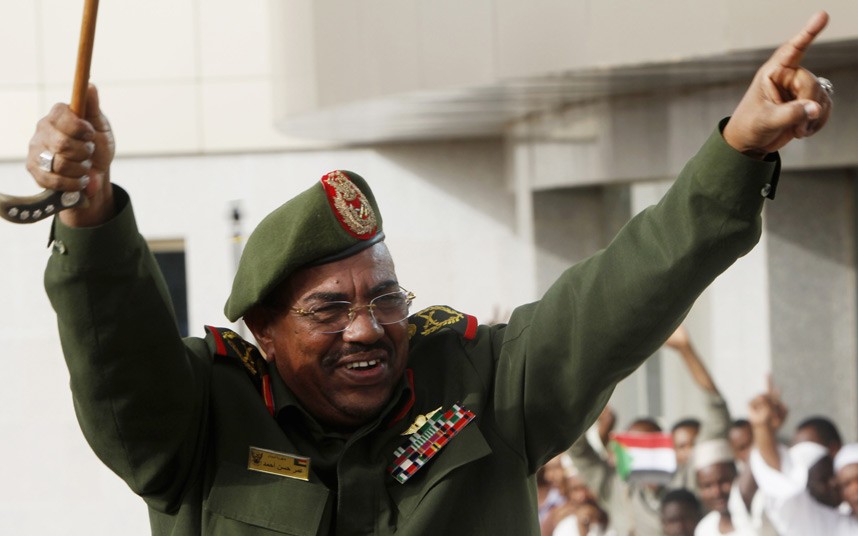The International Criminal Court (ICC) and for the cause of fairness and justice, and perhaps due to mounting criticism for its biased arraignment of only African leaders before the court, has buckled and declared that the charge of crimes against humanity laid three years ago against Kenya’s president, Uhuru Kenyatta (for atrocities allegedly perpetrated by him in the aftermath of a disputed election in 2007), would be dropped.
On December 5th the court’s chief prosecutor, Fatou Bensouda, announced. His reason? For lack of co-operation by Kenya’s government.
Then, a week later, Ms. Bensouda declared bitterly – for what it appears to be crimes against humanity in the then Sudan – that she was “left with no choice but to hibernate investigative activities in Darfur”, meaning that the ICC was unable to press home its charge of genocide against President Omar al-Bashir of Sudan.
This was for atrocities in the disaffected region of Darfur in and after 2003, when some 300,000 civilians are thought to have died as a result of the fighting between rebels and Mr. Bashir’s forces.
Though many African Institutions safeguarding human rights may have correctly portrayed the ICC as a tool of Western imperialism – where European governments bent on doing Africans down – are circumspect on Mr. Kenyatta’s case, they are concerned about that of Mr. Bashir.
This is coming at the back of an impending meeting of the African Union (AU) to be held next month, where Uganda’s president, Yoweri Museveni, will call for the 34 African countries that are ICC members to withdraw from it.
The ICC’s Mr. Bashir decision is certainly not the first heavy blow to the credibility of the court, which a growing number of African leaders have accused of bias, since all the 30-odd people indicted by it since it began to operate in 2002 have been African.
No matter that, as Ms. Bensouda (a Gambian) has pointed out, although five of the eight sets of cases under way were nevertheless initiated by African states and that two, including Sudan’s Mr. Bashir, were referred to the court by the UN Security Council, or that it was Mr. Museveni himself who asked the ICC to indict Joseph Kony, whose Lord’s Resistance Army has made murderous mayhem in northern Uganda and beyond for nearly three decades, still the decision to let Mr. Bashir walk has come with some pain.
It paints an undeserving picture of Mr. Kenyatta. The allegations against Mr. Bashir are far greater and carry countless consequences than anything the Kenyan President has ever been accused of. Not only that, Mr. Bashir’s crimes are perched unceremoniously on an issue that can be dubbed in any court as ethnic genocide – even racial crimes as close to a holocaust as it can get. Mr. Bashir and his entourage may confide in many that they, Arabs, fight against Africans in the South of Sudan.
Hence, so far, in the racially tinted history of the ICC, the only referral by an international organization, the UN, of Sudan’s Mr. Bashir, has come without indictment, whereas only Mr. Kenyatta’s, which in the first place could boast no evidence to the effect has celebrated any fairness in front of the court.
The cases of Kenya and Sudan differ sharply in gravity. Though Ms. Bensouda has complained about the failure of Kenya’s authorities to co-operate with the case against Mr. Kenyatta, he accepted the court’s jurisdiction. The case against him has been definitively withdrawn.
Sudan, however, is not a member of the ICC and Mr. Bashir, who never for a moment contemplated submitting to its authority, remains indicted—with no statute of limitation. Moreover, the horrors being inflicted on civilians in the outlying regions of Sudan are still going on.
Seven weeks ago 200 women were reported to have been raped by soldiers in Tabit, a village in southern Darfur. “Not only does the situation [there] continue to deteriorate, the brutality with which crimes are being committed has become more pronounced,” said Ms. Bensouda in her cri de coeur to the UN Security Council, blaming it for referring Sudan to the court in the first place yet dismally failing to back it up.
With what seems to be mounting pressure from African Heads of State and the imposing threat that the 34 African Union nations that have submitted to the court might back out by next month, her last-gasp hope is to “spur it into action” by more vigorously seeking the arrest of Mr. Bashir, whom she calls “a fugitive from justice”. States that have signed up to the ICC should, she says, meet their obligations to arrest him whenever he travels abroad, which he has done with brazen impunity.
And that includes Europe and Asia!
But Ms. Bensouda must be commended some. Her candour at the ICC meeting was in part intended to shame the Security Council into action against Sudan. Meanwhile Russia and China are certain to block any such thing.
The civilians of Darfur and other battered parts of Sudan will feel even more defenceless than before. They fear that Ms. Bensouda’s expression of anger and frustration will be taken by Mr. Bashir as giving him a free hand to act in Darfur as he brutally likes.











What can I say? The world desperately needs a moral compass to condemn acts of humanity. Alas it is greatly lacking one even with this ICC. Ms. Bensouda is to be congratulated, but sadly the world isn’t interested in arresting the behaviors of real criminals, only socially constructed ones.
We all know Bashir is a goat. His time will come and he too will be slaughtered like a goat.
If the ICC thinks that this is acceptable, to let Bashir go, then they have no credibility at all. This is the bottom of disgusting.